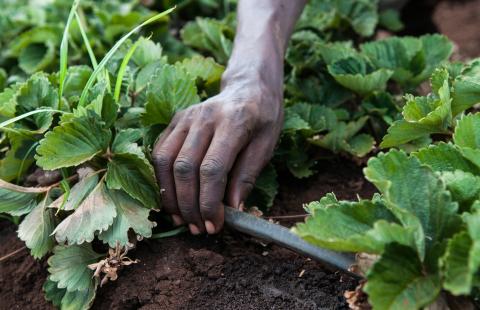Population pressure is high and soils are degraded in many areas of Malawi. Along with co-authors Annemie Maertens and Vesall Nourani, CEOS's Hope Michelson evaluated an agricultural extension program working to promote technologies of integrated soil fertility management to build and preserve soil health in Malawi. The authors conclude that farmers that engage in hands-on, local farming experiences, including season-long, farmer-led demonstration crop cultivation, plan to adopt more components of new technologies. Specifically, they found:
- Farmers learn more about new technologies from demo plots than field days, though field days might influence beliefs around profitability.
- Farmers learn more about technologies that demonstrate observable impacts on demo plots they co-manage with extension workers relative to technologies that do not demonstrate impacts.
- This effect is more heavily concentrated among 1) farmers whose plot conditions resemble the conditions of the demo plot and 2) input technologies are affordable.
- These observations are reflected in a two-stage model of learning in which farmers first assess profitability before choosing to pay attention to technologies when they are believed to be 1) profitable and 2) affordable.
Read the full article.
Maertens, A., Michelson, H. & Nourani, V. (2020). How do farmers learn from extension services? Evidence from Malawi. American Journal of Agricultural Economics. 10.1111/ajae.12135
